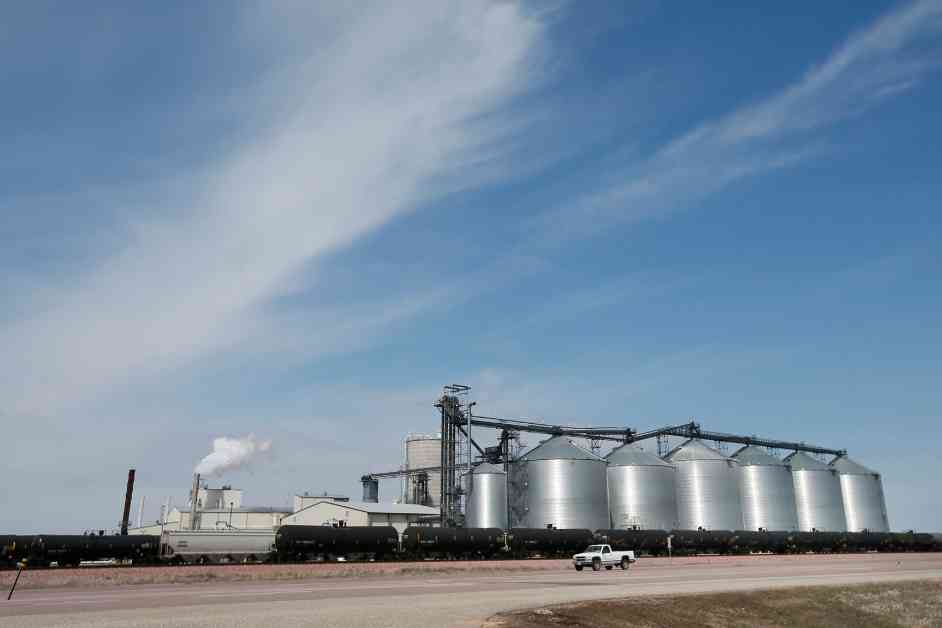Biofuel refineries in the United States have come under scrutiny for their alarming emissions of toxic air pollutants, as revealed in a recent report by the Environmental Integrity Project (EIP). Contrary to the industry’s claims of being a cleaner and greener alternative to petroleum, biofuel refineries were found to release hazardous substances in significant quantities, surpassing even petroleum refineries in some cases.
The review conducted by EIP analyzed emissions data from 275 ethanol, biodiesel, and renewable diesel plants across the country. The data showed that biofuel refineries emitted 12.9 million pounds of hazardous air pollutants in 2022, slightly less than petroleum refineries but significantly more in terms of specific substances like hexane, acetaldehyde, acrolein, and formaldehyde. These pollutants pose serious health risks, with acrolein being a known cause of vomiting and shortness of breath.
One ethanol and grain processing plant in Illinois, operated by Archer Daniels Midland (ADM), was identified as the largest source of hexane emissions in the country, a chemical known to cause nerve damage. The Prairie Rivers Network, an environmental nonprofit, raised concerns about the impact of air pollution from ADM’s plant on the health of nearby residents, highlighting the need for stricter regulation by the EPA.
The biofuels industry is poised for expansion, particularly in the production of sustainable aviation fuel, supported by significant investments from the Biden administration. This growth comes despite evidence that biofuels, particularly corn-based ethanol, have led to the conversion of natural lands into croplands, releasing substantial amounts of carbon into the atmosphere.
Furthermore, the EIP report revealed that biofuel plants have a history of violating air pollution control permits, with over 40% of plants reporting violations between July 2021 and May 2024. The industry benefits from numerous federal incentives and programs promoting renewable fuels, raising questions about the adequacy of oversight and regulation.
While industry representatives like Geoff Cooper of the Renewable Fuels Association refute the findings of the report, EIP stands by its research, citing data provided by biofuels companies to the EPA. The debate over the environmental impact of biofuel refineries underscores the need for thorough monitoring and enforcement to ensure compliance with emission standards and protect the health of communities near these facilities.

